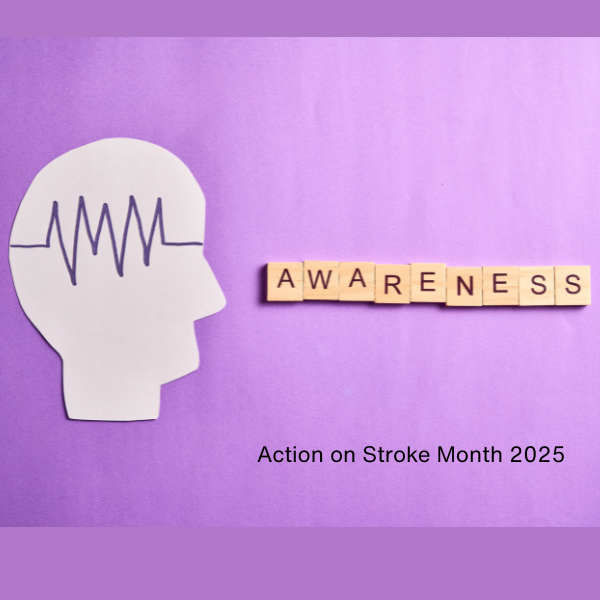Be Safe in the Sun!
Leukaemia Negligence & Misdiagnosis Claims Solicitors.
Receiving a leukaemia diagnosis is a life changing event for you and your family.
In most cases, treatment will begin promptly and you may be required to take an extended period of time off work whilst you receive treatment. As with most types of cancer, if leukaemia is diagnosed and treated early enough, the long term prognosis is generally very good. However, any delay in receiving the correct diagnosis and treatment can have a detrimental effect on your health.
If your leukaemia was initially misdiagnosed as a less serious condition, or if the symptoms were missed completely and your diagnosis was delayed, it may mean that your condition has worsened. As leukaemia progresses to a more advanced level, potentially spreading to other parts of the body, it can mean that the treatment options become more intensive and invasive.
In some cases, delayed diagnosis of leukaemia due to medical negligence can also lead to the condition becoming so far advanced that it becomes untreatable, and the only available treatment option is palliative care.
If you or a loved one have been negatively impacted by negligent leukaemia treatment you may be entitled to claim compensation. Here at Lanyon Bowdler we have a wealth of experience of helping people like you to claim what you deserve after receiving substandard medical treatment which has had both a physical and/or mental affect.
If you’re unsure as to whether or not you have a valid claim, or need some guidance on how to begin the claims process, please don’t hesitate to get in touch and our friendly team of medical negligence experts will be more than happy to help you.
Can I get compensation for Leukaemia Negligence?
If you have received any kind of negligent treatment from a healthcare professional which has directly or indirectly led to your leukaemia becoming more advanced and spreading to other parts of your body, you may be able to claim compensation.
Every medical professional owes you a duty of care to ensure that they provide an acceptable standard of care as a minimum. Any failure to uphold this duty of care could be considered medical negligence and could lead to undue harm. For example, if a doctor has misdiagnosed your leukaemia as a different condition, you may then receive unnecessary treatment, and your cancer could progress and spread to other parts of your body.
Your doctor may be considered negligent in their treatment of your leukaemia for the following reasons:
- Failure to carry out the necessary checks when you present with symptoms
- Failure to recognise that you are in a high risk category for developing leukaemia
- Failure to refer you to a specialist for further testing
- Failure to carry out the appropriate testing on referral
- Failure to read and/or interpret the test results accurately
- Failure to provide an accurate diagnosis
- Failure to prescribe the appropriate course of treatment
- Failure to provide treatment in a timely manner
- Failure to adhere to the latest medical guidelines
This list is by no means exhaustive, and any indication of medical negligence resulting in the worsening of your symptoms may make you eligible for compensation. Contact Lanyon Bowdler today to find out how we can help you.
Our Leukaemia Cancer Claims Expertise
Lanyon Bowdler is a specialised firm of Medical Negligence Solicitors. With years of experience, we support clients in cancer negligence claims, including cases involving cancer misdiagnosis. Our expertise in this field is acknowledged by national organisations, peers, and clients across the UK.
The Medical Negligence Team is recognised in Tier 1 for the West Midlands in the 2025 edition of the Legal 500, which states ‘The ‘efficient and pragmatic’ team at Lanyon Bowdler adopts a ’truly personal approach’ when dealing with cases involving birth, brain and fatal claims. It also frequently handles high-value cases relating to amputations and spinal injuries’.
Chambers UK 2025 rank the department in Band 1 for the Midlands and states ‘an impressive practice group with a growing presence across the West Midlands. The team offers specialist advice across the full gamut of clinical negligence mandates, with particular experience in cases of surgical error, delayed diagnosis and failure to supervise those at risk of suicide. The firm is additionally skilled in cases relating to post-surgical negligence, brain injury and fatal claims.’
Listen here to Beth Heath and a former colleague from the Clinical Negligence team talk about the delay in diagnosis of Cancer, using fictitious, but typical cases to illustrate the challenges people are facing.
Your Leukaemia Cancer Compensation questions answered
Leukaemia is a type of malignant and progressive blood cancer which mostly affects the white blood cells, bone marrow, and blood-forming organs. White blood cells are responsible for fighting off infections, but in leukaemia patients these cells don’t work in the normal way, and abnormal cells can develop, which can negatively impact the immune system and its ability to fight off infection.
There are two main types of leukaemia, including:
- Myeloid Leukaemia – Myeloid stem cells develop into red blood cells, white blood cells, and platelets. Red blood cells transport oxygen around the body, white blood cells fight infections, and platelets help the blood to clot. Acute myeloid leukaemia can occur in adults and children, and tends to develop rapidly. Chronic myeloid leukaemia mainly affects adults and develops gradually, often going undetected for several years.
- Lymphocytic Leukaemia – Lymphoid stem cells develop into B lymphocytes which create antibodies, T lymphocytes which assist the B lymphocytes, and natural killer cells which attack cancers and viruses that affect the blood stream. Acute lymphocytic leukaemia develops rapidly and occurs most often in children, and chronic lymphocytic leukaemia mostly affects adults.
There are around 8,000 cases of leukaemia diagnosed each year, with the majority of patients being men aged between 65 and 74. When leukaemia is detected early, the chances of making a full recovery are higher, so any delay in diagnosis can be detrimental. If your leukaemia was misdiagnosed and your condition has worsened as a result, you may be able to claim compensation, please get in touch with our specialist medical negligence solicitors today to find out more.
As with most types of cancer, it is not known exactly why some people develop leukaemia, but there are several risk factors that may increase the likelihood of developing the condition, including:
- Age – Leukaemia typically affects older people, and young children, which is thought to be due to their weakened or underdeveloped immune systems.
- Gender – Leukaemia tends to affect more men than women, although it is not known exactly why this is.
- Genetics – If a close relative has suffered with leukaemia, then you are at an increased risk of developing the condition, which is thought to be due to your genetic composition as opposed to a hereditary condition.
- Chemicals – Exposure to certain hazardous chemicals and radioactive materials is thought to increase the likelihood of developing leukaemia.
- Health conditions – There are several health conditions which may lead to an increased risk of developing leukaemia, for example bone marrow disorders such as myelodysplastic syndrome and myeloproliferative neoplasms.
If you fall into one of the above categories it does not necessarily mean that you will develop leukaemia – it simply means that your doctor should have a heightened awareness of any symptoms you present with and carry out checks for the presence of leukaemia.
The symptoms of leukaemia can sometimes be quite vague and will often vary depending on the type of leukaemia, as well as how far advanced the condition is. However, some of the common symptoms to look out for include:
- Tiredness/fatigue
- Unexplained weight loss
- Fever and chills
- Night sweats
- Excessive sweating
- Bleeding gums
- Bruising easily
- Nosebleeds
- Painful joints and bones
- Swollen lymph nodes
- Enlarged liver and spleen
- Light-headedness/palpitations
- Frequent infections
- Tiny red spots on the skin
This list is not exhaustive, and if you notice anything unusual in your body it is always worth seeing your GP so that they can assess your symptoms and set you on the right path for an accurate diagnosis.
There are several tests that your doctor can perform or order if they suspect that your symptoms are indicative of leukaemia, including:
- Physical examination – The GP will check your skin, feel your lymph nodes for signs of enlargement, and feel your abdominal area for signs of liver and/or spleen enlargement.
- Blood test – As assessment of the blood can tell doctors a lot about your health, for example the presence of abnormal white blood cells can prompt further testing to fully diagnose leukaemia.
- Bone marrow test – A doctor will take a small sample of bone marrow to be tested for leukaemia.
Once leukaemia is diagnosed, treatment typically begins promptly in order to give the patient the best possible prognosis. There are a number of different treatment options available, and the type of treatment prescribed will usually depend on the type of leukaemia and how advanced the cancer is.
Treatment methods for leukaemia include:
- Chemotherapy – A treatment which uses drugs to destroy cancer cells
- Radiotherapy – A method in which radiation is used to destroy cancer cells and prevent further growth
- Targeted therapy – Drugs are used to target and attack the cancer cells in order to slow the spread or destroy them completely
- Biological therapy – A treatment that aids the immune system in distinguishing between normal and cancerous cells
- Stem cell transplant – A method by which the diseased bone marrow is replaced with healthy bone marrow
- Palliative care – In some cases the cancer has progressed too far to be treated successfully, so patients are given palliative care to preserve their comfort and dignity as they approach end of life
In many cases a combination of different treatment methods is prescribed, for example a course of chemotherapy or radiotherapy may follow a stem cell transplant to ensure that all of the cancerous cells have been removed successfully.
If you feel that the treatment you received was not appropriate for the type or stage of leukaemia you are suffering with, and it has led to your condition worsening, you may be entitled to claim compensation. Please get in touch with our friendly and knowledgeable medical negligence team who will be happy to answer any questions you may have.
Treatment for leukaemia can be quite intensive and invasive, and it often carries undesirable side effects. Methods such as chemotherapy and radiotherapy are highly effective at treating a wide variety of cancers, including leukaemia, however, they do come with some additional risks.
Some of the common side effects associated with leukaemia treatment include:
- Hair loss
- Nausea
- Vomiting
- Fatigue
- Mouth sores
- Bleeding
- Anaemia
- Infection
If you are suffering from any adverse side effects from your leukaemia treatment it is always advisable to speak to your doctor as there may be an alternative treatment they can try, or additional medication that can be prescribed to help with the symptoms.
What our clients say.
Can i claim compensation for Leukaemia Misdiagnosis?
If you have been diagnosed with leukaemia which you believe to have been caused by, or made worse by, the negligent actions of a medical professional, you may be entitled to claim compensation. In order to make a claim you must be able to prove that the medical professional owed you a duty of care, that they were in breach of that duty of care, and that this breach has led to you developing leukaemia, or your existing leukaemia has worsened.
As with the majority of medical negligence cases, the statute of limitation is three years from the date on which the negligence occurred, or three years from the date on which you first became aware of the potential negligence. If the patient is under the age of 18, a parent or guardian may bring a claim on their behalf, or they may wait until their 18th birthday, at which point the three-year time limit will start, ending on their 21st birthday.
Contact our Leukaemia Cancer Solicitors
Please get in touch with one of our specialist medical negligence lawyers if you consider that you may have a Leukaemia Negligence Claim.
At Lanyon Bowdler, we take pride in being a friendly and approachable law firm in Wales, so please get in touch if you or a loved one have been affected by a late or missed diagnosis, or incorrect treatment. We have the expertise to handle your leukaemia negligence case with the utmost care and diligence.
Our Medical Negligence team is widely acclaimed and recognised as one of the best clinical negligence departments in the country. We are committed to providing exceptional levels of client care and will work closely and considerately with you to help find the best outcomes and help to get your life back on track.
We have offices in Shrewsbury, Telford, Oswestry, Ludlow, Hereford, Bromyard and Conwy, where our friendly, knowledgeable staff will be happy to welcome you for an initial chat about your requirements.
Please don’t hesitate to get in touch today and a member of our team will be happy to discuss your case and offer advice.
Meet the team.
Case studies.
Latest knowledge.
Our awards and accolades.
Get in touch.
"*" indicates required fields

 Back
Back






























 Blog
Blog



 Case Study
Case Study

 Podcast
Podcast













